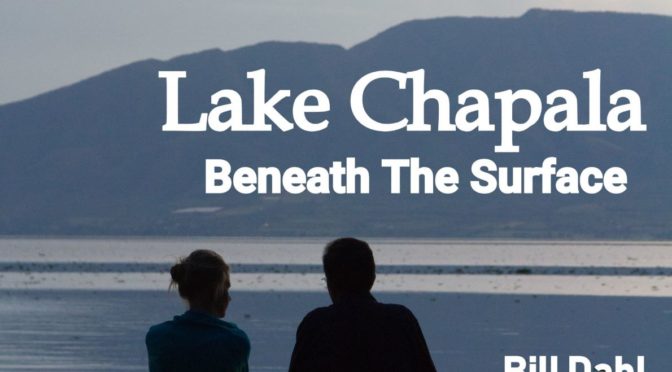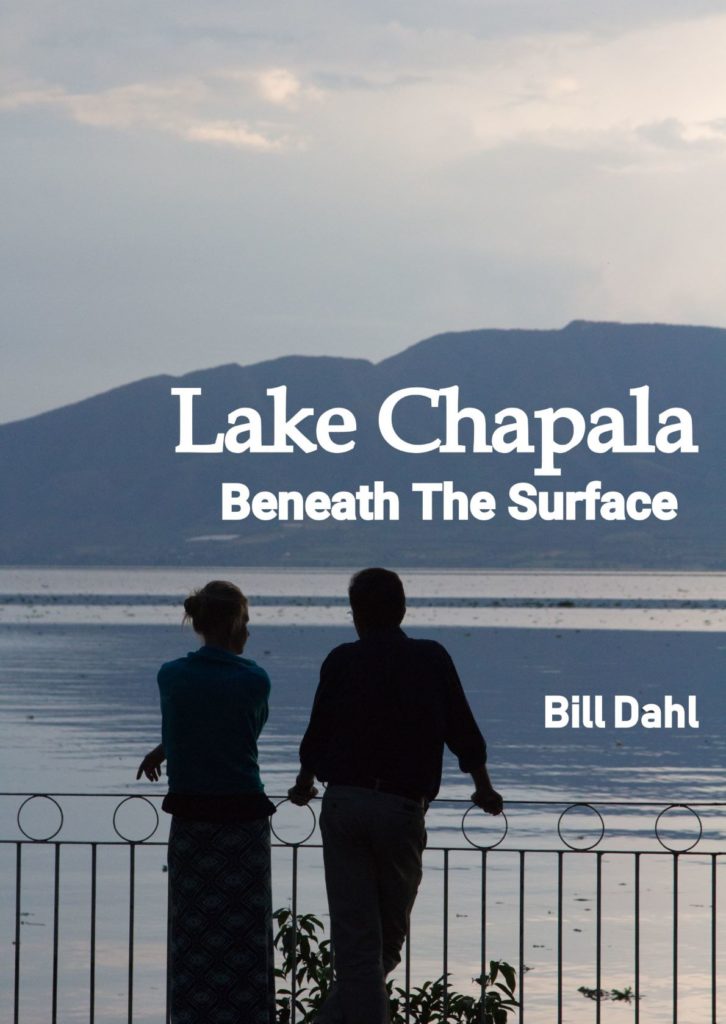Here are some initial reader reactions to my new book:
Lake Chapala – Beneath The Surface – Considerations for Retiring in Mexico.
Links to Amazon for you:
As of Monday 1/28/2018 – from Amazon – under E-book the book is ranked by Amazon as follows:
- #11in Kindle Store > Kindle eBooks > Nonfiction > Travel > Specialty Travel > Senior Travel
- #22in Books > Travel > Specialty Travel > Senior Travel
- #1 New Releases – Senior Travel – https://www.amazon.com/gp/new-releases/digital-text/14046381011/ref=zg_b_hnr_14046381011_1
Here are reader commentaries:
“This is a Good Book supporting your inquiry into the current challenges of living in the Lake Chapala area. This book is by far the best written for this subject. I found it informative and conclusive, given the body of information on living in the Lake Chapala area to date, and my limited resources in this subject area. I’m hoping that the President of Mexico has access to this book written by this author and gives it his consideration and acts on its recommendations. This book, in my opinion, is one of the best reports (so far) that encapsulates the needs of the Lake Chapala area. Great supporting back up!”
Robert – Ajijic, Mexico
“As you clearly state: “People are getting sick. People are dying.” Mexicans need to appreciate the negative impacts corruption has on health and the environment in the Lake Chapala basin. The fact that Lake Chapala is the largest natural water reservoir in Mexico, and depends on one of the most polluted rivers, the Lerma River, must cause a renewed level of public interest for the three levels of government in Mexico. Telling Mexican society, government, international regulatory bodies, and organizations where Mexico is a signatory to both human rights and environmental agreements about this issue is an important obligation, and your book achieves these objectives. Its’ contribution is a major one; it identifies the problem, its’ dimensions, and provides an example in the U.S., suggesting to readers how to proceed during environmental and public health crises related to water and the prospective economic costs for non-intervention in this public corruption case. I think that your book is very consistent and does not only define the problem, but the elements to counteract it. I really love your phrase: “Fix the outcome before it cannot be fixed.”
Dr. Jose Ivan Rodriguez-Sanchez
Rice University – James A. Baker III Institute for Public Policy – Mexico Center – Houston, Texas
Your objective was an excellent one and you accomplished it well. My husband and I have been researching the possibility of moving to Mexico for over 2 years. However, we had seen a few articles re: the condition of Lake Chapala and the fact that it was not a recreational lake other than boating.
We were made aware of some of the issues you discuss while we were there but some of your research resonates with my husband. He holds a PhD in analytical chemistry and did research for a contract research organization. His work included environmental research for NIH, NIEHS, EPA, focusing on environmental factors affecting health quality. He understands the impact of pesticides, aerosolization of pesticides/etc. from lake water and the effect on various populations. We had concerns about local fruits and vegetables grown Lakeside that were raised from lake water/irrigation. That requires more research on our part.
I was diagnosed with cancer two years ago and had successful radiation/chemo treatment and am now cancer free. HOWEVER, I am cautious about external conditions, food contamination, non-GMO, etc. etc. issues. Some of the existing conditions you present confirmed our own understanding – and expounded further.
Not only the health issues your book addresses, but the failed infrastructure and inability to rectify the many negative conditions easily. We are taking a little more time to explore other areas. Your book is very timely and we appreciate it.
E. – Eastern U.S.
Bill captures the serious nature of water pollution at Lake Chapala. It’s an eye opener and most likely a downer for many people – even me – who have been considering a retirement move to the Lake Chapala area in Mexico. And, as a professional engineer with more than 30 years of worldwide experience in water distribution and wastewater treatment, I was horrified at what Bill has revealed.
The problem is correctable, as Bill points out. However, my view is that more than government agencies and committees will be needed. Taxation will need to increase to support the infrastructure improvements. And, if property owners think that they can pass these costs onto expats then the story can only end in a decline of Lakeside.
Jim, P.Eng. New York
I have been coming to Lake Chapala for 10 years from the states. Living here full time for 6 of those years. I have seen a lot of changes. Can’t imagine what gringos, who have lived 15, 20, or 30 years, think of quaint little lakeside now. Traffic is awful, internet slow, rental prices up, power outages, home prices up a lot, restaurant prices up, and on and on. If you want to live as Mexicans do your money will go far. Any time a person is thinking of living in another country, visit several times and even live there for a few months to get the full effect. Lake Chapala used to have a slowdown in the summer. Not so much anymore. The infrastructure Lakeside cannot sustain the growth. There are no plans to make improvements.
Sandy – Ajijic, Mexico




